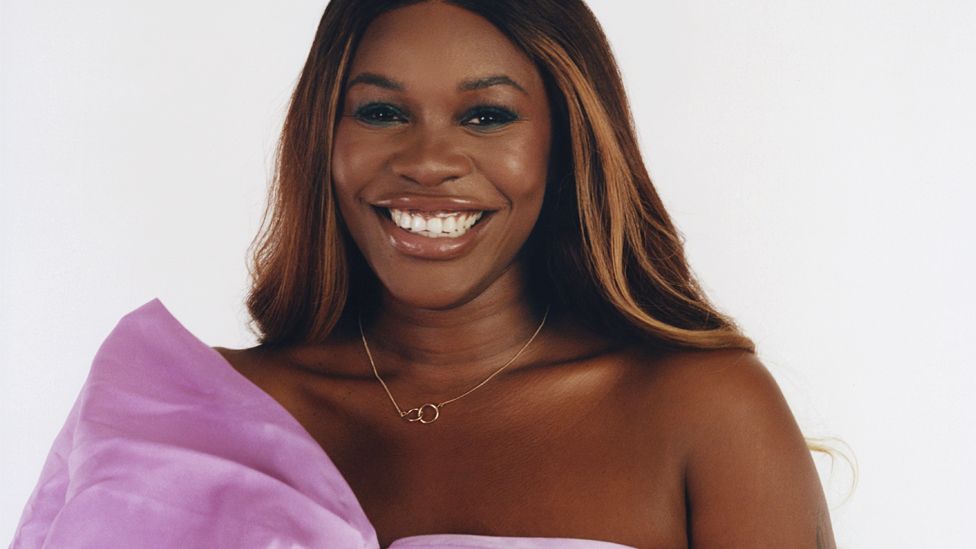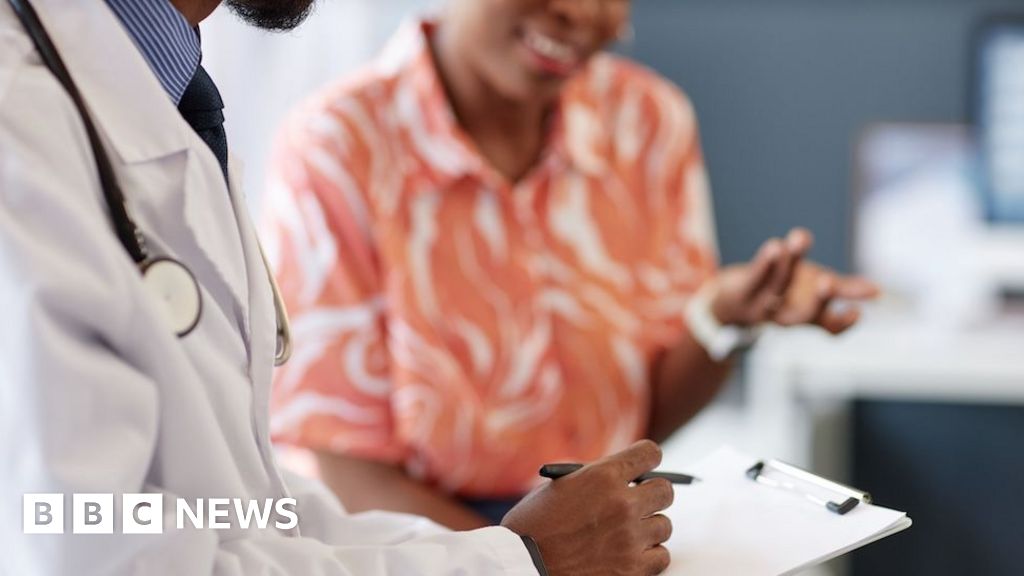ARTICLE AD BOX
 Image source, Katie Silvester
Image source, Katie Silvester
Jackie Adedeji has been exploring the mental and physical side effects of having larger breasts
By Megan Lawton & Pria Rai
Newsbeat reporters
Shame and pain - just two of the words women have used to describe their experience of having big breasts.
Jackie Adedeji thinks having larger boobs isn't taken seriously and says we see them as "funny and silly" in the UK.
She says being a size 36K means there have been times in her life where she wanted to hide.
"From about 11 years old I was super sexualised, I remember vivid experiences of walking to school and having grown men walking past me licking their lips," she tells BBC Newsbeat.
"I've also been in meetings, where you have colleagues staring at you, making you feel like you're here to be a sexual object."
Jackie, who's explored these issues in a new Channel 4 documentary My Big Boobs: UNTOLD, says she's learnt to embrace her body with age.
But there's a lot of women who go under the knife, and it's something that's becoming more common.
The British Association of Aesthetic Plastic Surgeons (BAAPS) say breast reduction is the second most popular aesthetic procedure.
They say there were 5,613 breast reductions in 2022, up 122% from the year before.
Image source, ACME Productions
Image caption,Jackie met a lot of women who are suffering with big boobs when making her Channel 4 documentary
Jackie says she doesn't think people get "how mentally taxing it is" having bigger breasts.
"They feel shameful, because a lot of people feel ownership towards your boobs, when they're big, they are seen as public property," she says.
And she's experienced cultural pressures too - she grew up in a religious home where there was an expectation of modesty.
"You're supposed to be classy and additionally, as a black woman, you always want to come across in the most positive way possible and I often felt that my boobs weren't seen as a positive thing."
'Leave her alone'
Amber has also been through it - and decided to go private at the start of 2022.
After years of being in mental and physical pain due to her 36I size, the operation had been a long time coming for the 26-year-old from Cornwall.
"I had been suffering since leaving school, but after breastfeeding my daughter the pain got to the point where I could barely walk without hurting," she says.
At first, she tried to get the operation under the NHS but they rejected her several times.
"My husband and I had a long chat, and we decided to take a loan out," says Amber, whose surname we are not using at her request.
"Even though the financial strain has been an absolute nightmare, the operation was the best decision I ever made."
Image source, Amber
Image caption,Amber says she felt pushed away from the NHS, which left her feeling isolated
Breast reductions aren't unique in being difficult to get on the NHS and like other ops, there can be long waiting times.
Someone who did manage to get an NHS operation is 28-year-old Rachael.
But that was 10 years after she approached her doctor with back pain and anxiety because of being teased about her 34HH boobs.
Rachael was told to lose weight, despite having a healthy BMI, and it was only when she was diagnosed with chronic back pain that she feels she was taken seriously.
Although it was far from being fast-tracked to surgery.
"I tried painkillers and physio for six months before I was added to the waiting list and from there it took two years," she says.
Rachael - whose surname we are not using - counts herself as incredibly lucky and her says her life post-op is a lot better.
"Before the operation I couldn't do any running without being in serious pain. So that's definitely one of the biggest upsides.
"I'm definitely a lot more body confident than I was."
Image source, Rachael
Image caption,Rachael says being told to diet when she was 16 caused a lot of psychological problems
Why are more women getting breast reductions?
BAAPS vice-president Nora Nugent believes it's because reductions are an effective procedure with functional and aesthetic benefits.
"It helps in terms of physical comfort, body image, and practicalities, even things like clothing fitting properly," she tells Newsbeat.
The plastic surgeon also believes the procedure is becoming less taboo.
"For a long time surgery had a secrecy associated with it and although breast reduction isn't cosmetic, it fell into that category.
"So people didn't really talk about it. Now, it's much more open."
So how do you go about getting an operation?
NHS England told us that individual trusts look after breast reductions - and that includes how they decide who can and can't have the surgery.
The procedure starts with a GP appointment where patients will be assessed for problems like back and neck pain as well as mental health issues, such as depression.
If a doctor thinks you're suitable, you will be put forward to be seen by a breast surgeon but you could be waiting a while to get an assessment.
The final decision is made by a team at the local trust.
For Jackie, she knows her documentary won't reduce waiting times but her hope is that it leads to people having more empathy.
"I'd like to see more compassion towards women with big boobs, because I want people to think if they ever see a woman walking across the street and she's got big boobs, she's minding her own business, leave her alone."
Related Internet Links
The BBC is not responsible for the content of external sites.

 1 year ago
37
1 year ago
37








 English (US) ·
English (US) ·